
Ready to cook perfect ribs in the oven? Here are the exact cooking times you need:
- Baby Back Ribs: 3-4 hours at 275°F
- Spare Ribs: 4-5 hours at 250°F
- Beef Ribs: 2.5-3.5 hours at 300°F
- Lamb Ribs: 2-2.5 hours at 325°F
Low-and-slow cooking ensures fall-off-the-bone tenderness while preserving moisture. Below, we'll break down each step with expert tips for guaranteed success.
Table of Contents
- How Long to Cook Ribs in the Oven?
- Spice Storage and Usage Hacks for Juicy Ribs
- Essential Tools and Accessories for Rib Perfection
- Buying Guide: Choosing the Right Spices and Rubs
- Frequently Asked Questions About Cooking Ribs in the Oven
- Final Thoughts: Master the Art of Oven-Baked Ribs
How Long to Cook Ribs in the Oven?
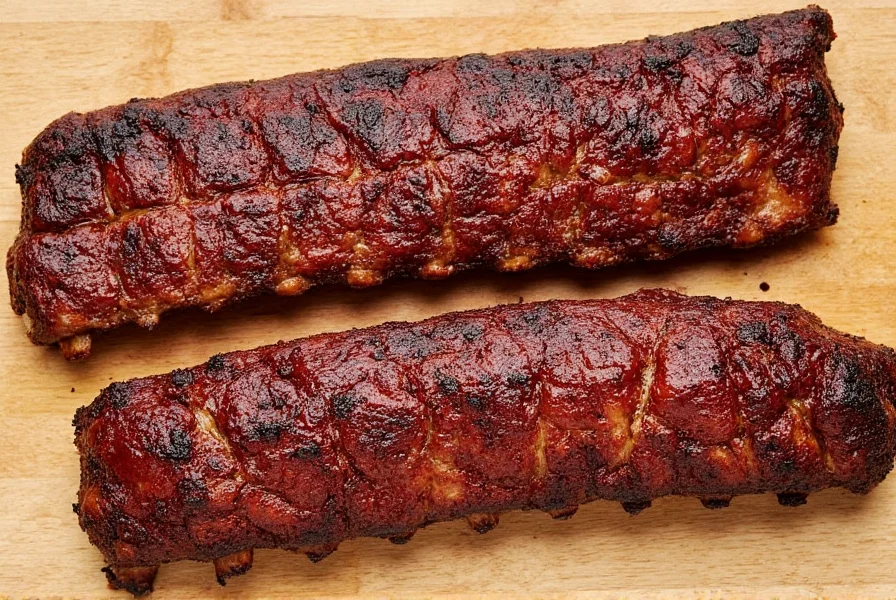
Timing is critical for perfectly cooked ribs. Use this detailed reference guide for precise results:
| Type of Ribs | Temperature (°F) | Cooking Time | Internal Temp Target |
|---|---|---|---|
| Baby Back Ribs | 275°F | 3–4 hours | 190-205°F |
| Spare Ribs | 250°F | 4–5 hours | 190-205°F |
| Beef Short Ribs | 300°F | 2.5–3.5 hours | 200-210°F |
| Lamb Ribs | 325°F | 2–2.5 hours | 195-205°F |
Pro Tip: Foil It Up!
Wrap ribs tightly in foil during the first 2-3 hours of cooking to lock in moisture and accelerate tenderization. This "Texas crutch" method mimics slow-smoking while preventing drying out.
Spice Storage and Usage Hacks for Juicy Ribs
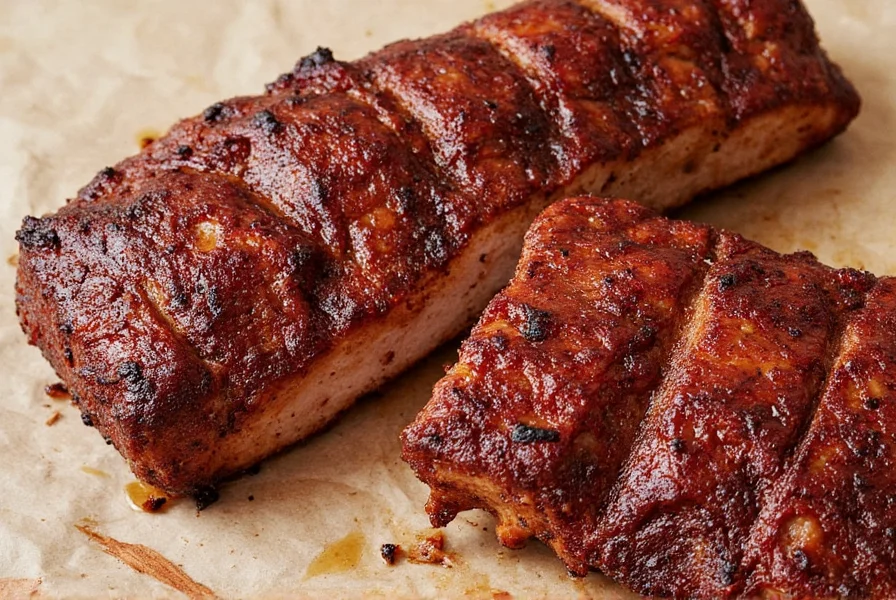
Proper spice management is key to consistent flavor. Follow these expert storage and usage techniques:
1. Use Airtight Containers
Store spices in glass jars with tight seals away from heat and sunlight. Humidity degrades flavor within weeks if exposed.
2. Label and Date Everything
Ground spices last 6-12 months; whole spices last 2-3 years. Mark purchase dates to ensure peak freshness.
3. Revive Old Spices With Heat
Toast dried spices in a skillet for 30 seconds to release oils. Ideal for cumin, coriander, and chili powders.
4. Create Custom Blends
These professional-grade rubs deliver restaurant-quality results:
- Classic BBQ Rub: Brown sugar, smoked paprika, garlic powder, onion powder, chili powder, salt, pepper
- Tex-Mex Kick: Chili powder, cumin, oregano, lime zest, smoked paprika, salt
- Mediterranean Magic: Rosemary, thyme, garlic powder, lemon zest, black pepper, salt
- Asian Twist: Five-spice powder, ginger, garlic powder, brown sugar, soy sauce paste
5. Store Rubs Separately
Batch-prep your favorite rubs in labeled containers for quick, consistent seasoning every time.
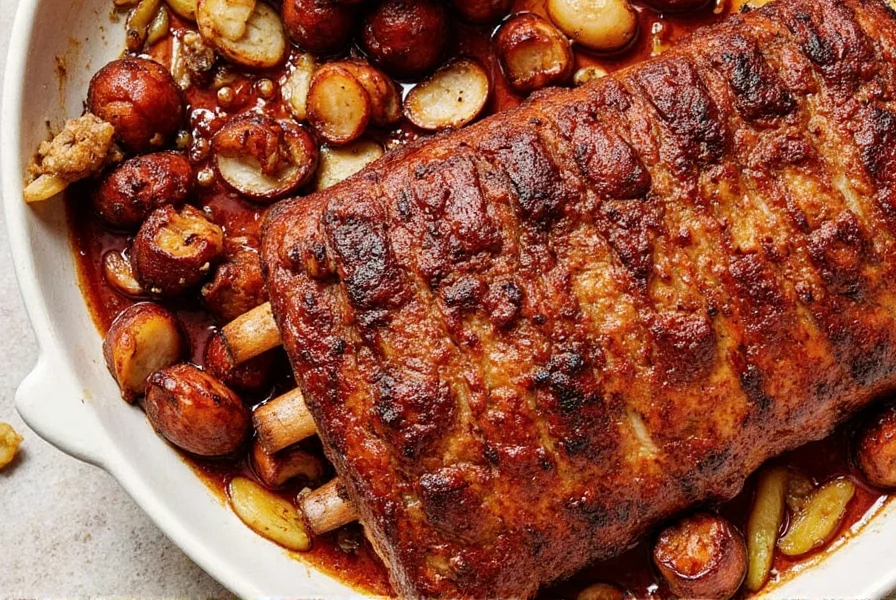
Essential Tools and Accessories for Rib Perfection
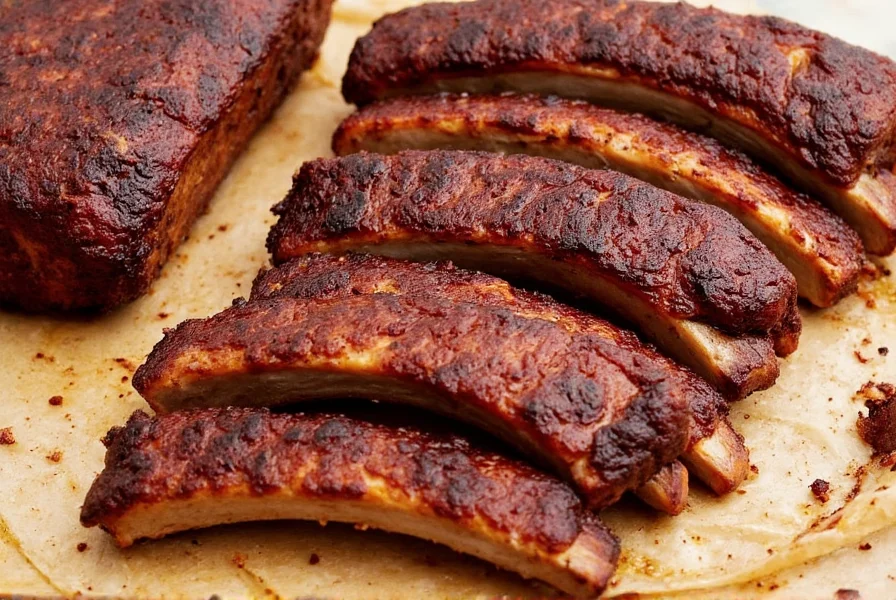
These professional-grade tools ensure precision and consistency:
1. Meat Thermometer
Non-negotiable for perfect doneness. Target internal temperatures: 190-205°F for pork ribs, 200-210°F for beef ribs.
2. Cooling Rack
Place on baking sheet to allow air circulation under ribs. Prevents sogginess and creates superior bark formation.
3. Silicone Basting Brush
Heat-resistant and easy to clean. Perfect for applying sauces without damaging meat.
4. Heavy-Duty Aluminum Foil
Use for the "Texas crutch" method. Wrap ribs tightly to trap steam and accelerate collagen breakdown.
5. Drip Tray
Place under cooking rack to catch juices. These drippings make excellent gravy or glaze base.
Buying Guide: Choosing the Right Spices and Rubs

Professional chefs recommend these top-tier products for consistent results:
1. McCormick Gourmet Collection
Best for: Beginners building a foundational spice kit
Features: Freshly ground spices in resealable bottles, wide availability, consistent quality
2. Badia Smoked Paprika
Best for: Authentic smoky depth without artificial additives
Features: Oak-smoked peppers, rich red color, intense flavor profile
3. Simply Organic Mesquite Seasoning Blend
Best for: Authentic southwestern flavors
Features: USDA certified organic, no fillers, vegan-friendly
4. Weber Grills Premium BBQ Rub Pack
Best for: Quick experimentation with professional blends
Features: Chef-tested Sweet & Smoky, Bold & Tangy, Spicy & Fiery options
5. Spiceology Custom Kits
Best for: Advanced cooks creating signature blends
Features: Single-origin spices, precise ratios, reusable storage
Frequently Asked Questions About Cooking Ribs in the Oven
How long do you cook ribs in the oven at 350 degrees?
At 350°F, baby back ribs need 2-2.5 hours and spare ribs require 2.5-3 hours. However, lower temperatures (225-275°F) yield superior tenderness with longer cooking times (3-5 hours).
How do you know when ribs are done in the oven?
Ribs are done at 190-205°F internal temperature for pork or 200-210°F for beef. The meat should pull back 1/4-1/2 inch from bones and bend easily without breaking.
Should I wrap ribs in foil when baking?
Yes. Wrap ribs in foil after 2-3 hours of cooking to lock in moisture. Unwrap for the final 30-60 minutes to develop a crust.
What's the best temperature to cook ribs in the oven?
225-275°F is ideal. Lower temps (225-250°F) create ultra-tender results in 4-5 hours. Higher temps (275-300°F) work for 3-4 hours. Avoid temperatures above 325°F to prevent toughness.
Can you overcook ribs in the oven?
Yes. Overcooked ribs will fall apart completely when touched. The ideal texture is "tender enough to pull meat from the bone with your teeth" while maintaining structural integrity.
Do you cook ribs bone side up or down?
Cook bone side down (meat side up) to allow fat to render through the meat. Place on a cooling rack over a drip tray for optimal air circulation.
Final Thoughts: Master the Art of Oven-Baked Ribs

Cooking ribs in the oven is simple when you follow these proven techniques. Remember: low temperatures, precise timing, and proper spice management are the keys to restaurant-quality results.
Always use a meat thermometer to verify doneness. Pair your perfectly cooked ribs with freshly stored spices and professional-grade tools for consistent excellence every time.
Now fire up that oven and impress everyone with your rib mastery!

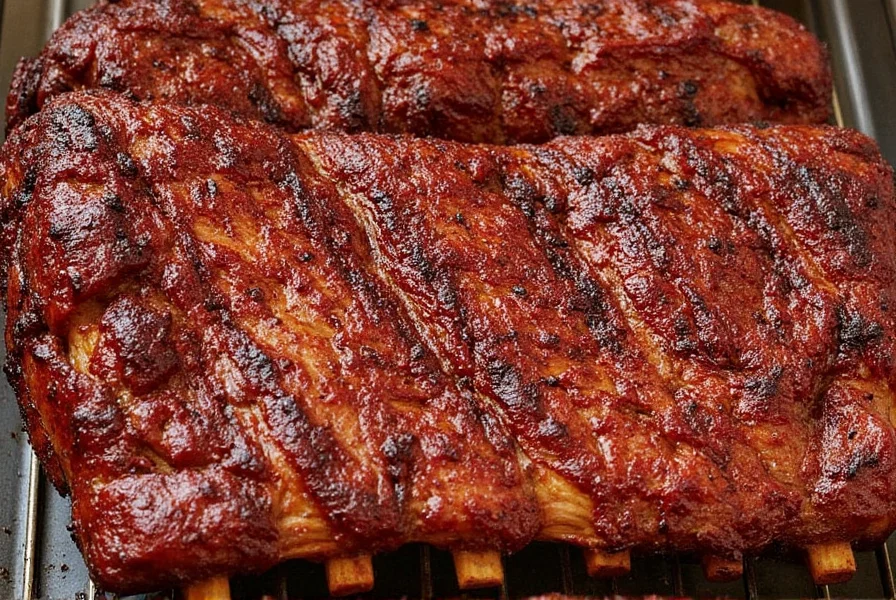









 浙公网安备
33010002000092号
浙公网安备
33010002000092号 浙B2-20120091-4
浙B2-20120091-4